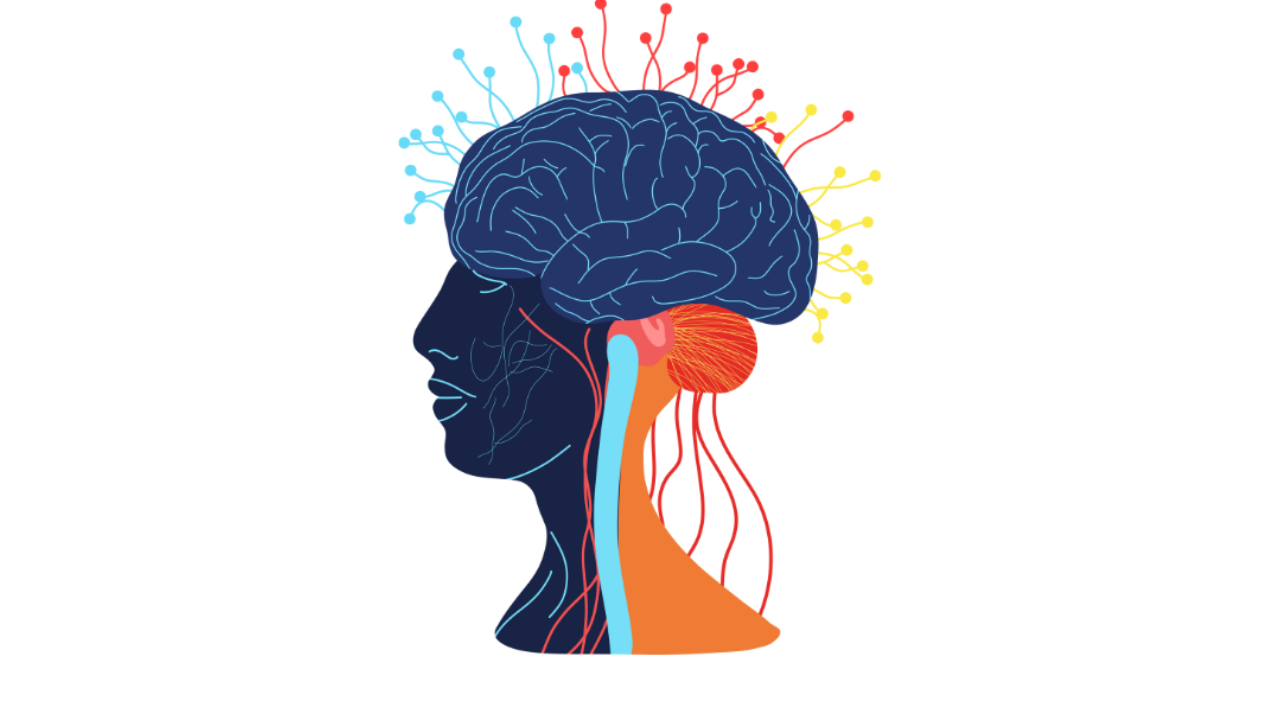How To Change Your State
Oct 24, 2025
Dear Friends,
Have you ever noticed how you feel instantly calmer when you're around certain friends who just "get you"? And when you leave their company you might say ‘my cup is full’ and feel deeply satisfied and at peace?
Have you ever noticed how some people seem to suck the energy right out of you? And when they leave you feel depleted and frazzled?
Some people and situations really do ‘get on our nerves’ literally!
It's not coincidence – that's your nervous system responding to your environment.
At the start of a recent community call, I asked everyone to raise a hand if they felt better after the breakout rooms than when they first joined. Every single hand went up. Not one person felt worse. Take that in for a second. Same people, same day, just 10 minutes of real talk—and their bodies and minds settled.
The myth of “I’m different”
A quiet belief many of us carry is “I’m different from others.” We look around and imagine everyone else is breezing through life, while we’re the only ones anxious, unsure, and wrestling with feelings we can’t seem to escape. We may even believe that we’re beyond help.
I used to struggle with this. I would imagine that everyone else had their shit together, while I battled through life, feeling ‘not normal’.
However, if we’re brave enough to talk openly, we discover that most of us are running similar programs: fear of judgment, imposter feelings, longing for relief. And that far from being different, this is often the norm. No wonder so many of us are ‘drowning our sorrows’ with alcohol.
The truth is we all experience suffering, and even if we try to distract ourselves, it is often there, bubbling under the surface. That low hum of anxiety is very common, especially in high-achievers. It’s often what drives us, keeps us ‘on our toes’. The expression ‘nervous energy’ speaks to this.
Why we reach for relief
People drink for different immediate reasons—some to numb and escape, others to amplify fun or smooth social edges. But underneath sits a common goal: state change.
If we’re driven by nervous energy, it means our nervous system is constantly activated – fight, flight, freeze or fawn. We react to life, instead of responding.
When stress stacks and our recovery time is thin, our ability to tolerate any additional stressors decreases and our nervous system starts to become frazzled. In that state, the tiniest extra demand can tip us over into “just make this feeling go away.” That’s the risky moment—not because we’re weak, but because our nervous system is overloaded.
At this point reason and rational thinking are unavailable to us. We are in survival mode. And in this state we will focus on the one thing we knows will relieve the discomfort. Our body and mind are craving a change in state.
Often the cause of this dysregulation is our inner struggles. We try to be all things to all people, we overwork to get recognition, more status or a sense of safety. We push ourselves, never feeling good enough, or we spend our time complaining and feeling resentful for all the demands people put on us. But neither approach has a positive outcome. We just get more stressed!
Few of us were taught how to recognise the signs of nervous system dysregulation, nor the tools to calm ourselves down. For many, including myself for many years, the dysregulated state becomes our norm.
Regulate before you reason
Once your nervous system is dysregulated, logic is offline. That’s why “talking yourself out of it” rarely works once the wheels are in motion. That’s why learning to notice and regulate your state is extremely important.
I mentioned in the beginning that open, honest communication with others who understand can have a powerful effect on the nervous system. As can being stuck in a room with someone who ‘gets on your nerves’. These are two powerful examples that we can use to become more aware of our state. If we start to pay close attention to how we feel with certain people we can begin to get better at noticing the subtle signs that tell us we’re regulated, or dysregulated.
The sequence works like this:
- Recognise – Name the state before the interaction (stressed, calm, anxious etc)
- Regulate - Do something physiological first. (Take a few long deep breaths, stretch, look outside for a few minutes)
- Notice – Pay attention to any changes to how you feel during the interaction (breath quickens, tightness in chest or deeper breaths, body softening)
- If you notice discomfort return to step two.
Practice these steps as you interact with others. If you pay close attention, you’ll begin to notice the impact of others on your nervous system. And more importantly, you’ll be teaching yourself to recognise the signs of dysregulation.
What helps when you feel ‘frazzled’
Try these micro-shifts you can do in 90 seconds or less:
- Box breath (or physiological sigh): In 4–hold 4–out 4–hold 4 (x4). Or do two short inhales + one long exhale three times.
- Cold on wrists / back of neck: 30–60 seconds signals “not an emergency” to your system.
- Heavy-exhale walk: Two minutes of purposeful walking (outdoors if possible). Match steps to long exhales.
- Co-regulate on purpose: Text or call someone who “gets it.” Name three facts, one feeling, one need. Being seen and heard settles your physiology.
- Drop-the-rope scan: Ask, “What’s mine? What’s theirs? What can be shared?” Then deliberately put down what isn’t yours.
Build “recovery between stresses”
Most of us don’t lose our shit from one big thing; we slide from the ten small ones we didn’t recover from.
Think of stress recovery like reps:
- 1-minute resets between meetings (eyes off screens + three long exhales).
- Boundary scripts ready to go: “I need to circle back tomorrow with a clear head.”
- Ritualised evening switch-off (light, sound, smell, movement) to replace the “drink o’clock” cue.
- Sleep as a practice, not a prize (consistent wind-down, low light, gentle stretch, warm shower).
Practice the “breakout room energy” in real life
In our calls, people listen to listen, not to fix. That’s co-regulation. Could you bring that presence to the person who usually triggers you? Try it out this week:
- Before the chat: Regulate (breath/move).
- During: Slow voice, soft eyes, genuine curiosity. “What matters most to you in this?”
- After: Shake out your hands, long exhale, quick walk. You just taught your nervous system a new pathway.
Your 7-day experiment
- Daily: One 60–90 second regulation practice + one micro-recovery between demands.
- Twice: Co-regulate intentionally—voice note or 10-minute walk with a person who “gets it.”
- Once: Practice the “breakout room energy” with a known trigger (prepare, connect, recover).
- End of week: Ask, “Where did real connection help me make a better choice?”
You don’t need to white-knuckle your way to change. You need a regulated body, a few simple reps, and people who impact you in a positive way. Even one person who gets you can have an extraordinary impact on your internal state.



